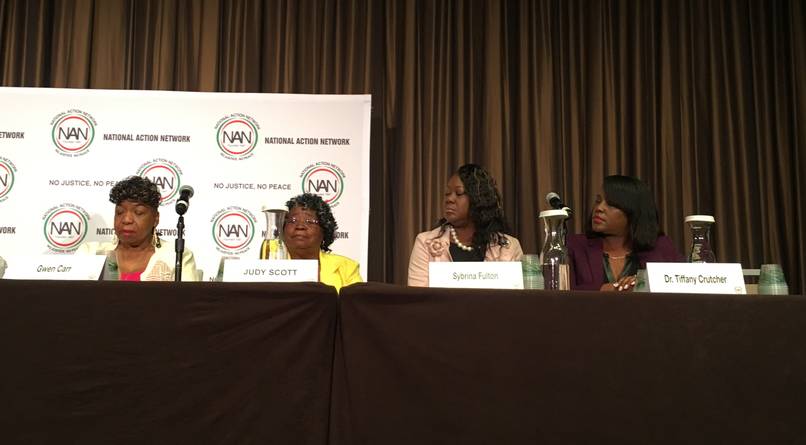
All men are created equal defines our national character more than any other single belief, we say. We have fashioned countless laws and we celebrate the many ways our society truly values that belief. The fact that all women are created equal to men in every way is still among our values.
As proof, just ask the now infamous ex-Fox pundit Bill O’Reilly, ex-Fox official Roger Ailes, or comedian Bill Cosby. Even former President Bill Clinton and President Donald Trump will pay lip service, if nothing more. Each of these men have paid a price of lording over women, who were subordinates in the work place. Each of them are alleged to have imposed distasteful and careless indignities on women.
There was a day when “Negros knew their place” and “the women’s place was in the home”. No longer.
The shift of women from the hearth and spinning wheel to co-worker, supervisor, company president or board member in every workplace in the country, has forced us to call sexual harassment an affront to the respect and protection that any man would expect and every institution and hamlet must ensure extends to everyone, be they male or female.
Formerly, women were “allowed” into the corridors of corporate America and the expectation of their subordination meant that unwanted advances were a price to be paid when it came to the only reality that mattered. Men ran the world and could justify whatever untoward actions they found convenient. Sexual harassment came with the territory. At its core, sexual harassment is demonic because it reviles respect for the opposite sex and fosters a crude sense of entitlement.
Women have a history of being disadvantaged in our society. Scholars have taken special note of the case of Anita Hill (formerly of Tulsa, Oklahoma) vs. Clarence Thomas (U.S. Supreme Court Justice). In our age of reality TV and social media, if the Thomas hearing on his Senate confirmation took place today, Thomas’ alleged objectifying Hill by making unwanted advances, without fear of reprisal, may have been the basis of his fiercest detractors fight to deem him unfit to serve.
Something like “The Thomas Affair” or “Anita-itis” as the epitome of such excesses might have become a part of our lexicon. Now, because of the infamy of names like Cosby, Ailes, and now O’Reilly, Clinton and Trump, this chapter magnifies the principal of respect for women as equals in the workplace and should be dubbed “The O’Reilly Factor”.
Public outcry against O’Reilly and loss of revenue from its advertiser caused Fox corporation to recognize the limits to its audacity. It pushed O’Reilly off the plush pinnacle of hubris and celebrity. He is forced to continue building his brand on low wattage media rather than the high voltage megaphone he helped build.
He’s not the first to be accused of lording over subordinate women with distasteful, careless indignities. He won’t be the last. But his ouster means several things to several audiences.
First, the cable news company-canopy he helped grow, and the power of social media caused most anything to reverberate or ricochet endlessly
Second, we are actually seeing the mores being shaped that often reflect those aspirations of gender equality. If we persist, we may change even more the chauvinist attitudes that have resisted during our trudge toward that more perfect union.
What has “The O’Reilly Factor” taught us? Those who prey on the Jills and Janes of the world, women in general, have been warned that they cannot ply their trades without repercussions and that those who have been preyed upon are learning that they do not have to suffer such indignities absent of recourse.









